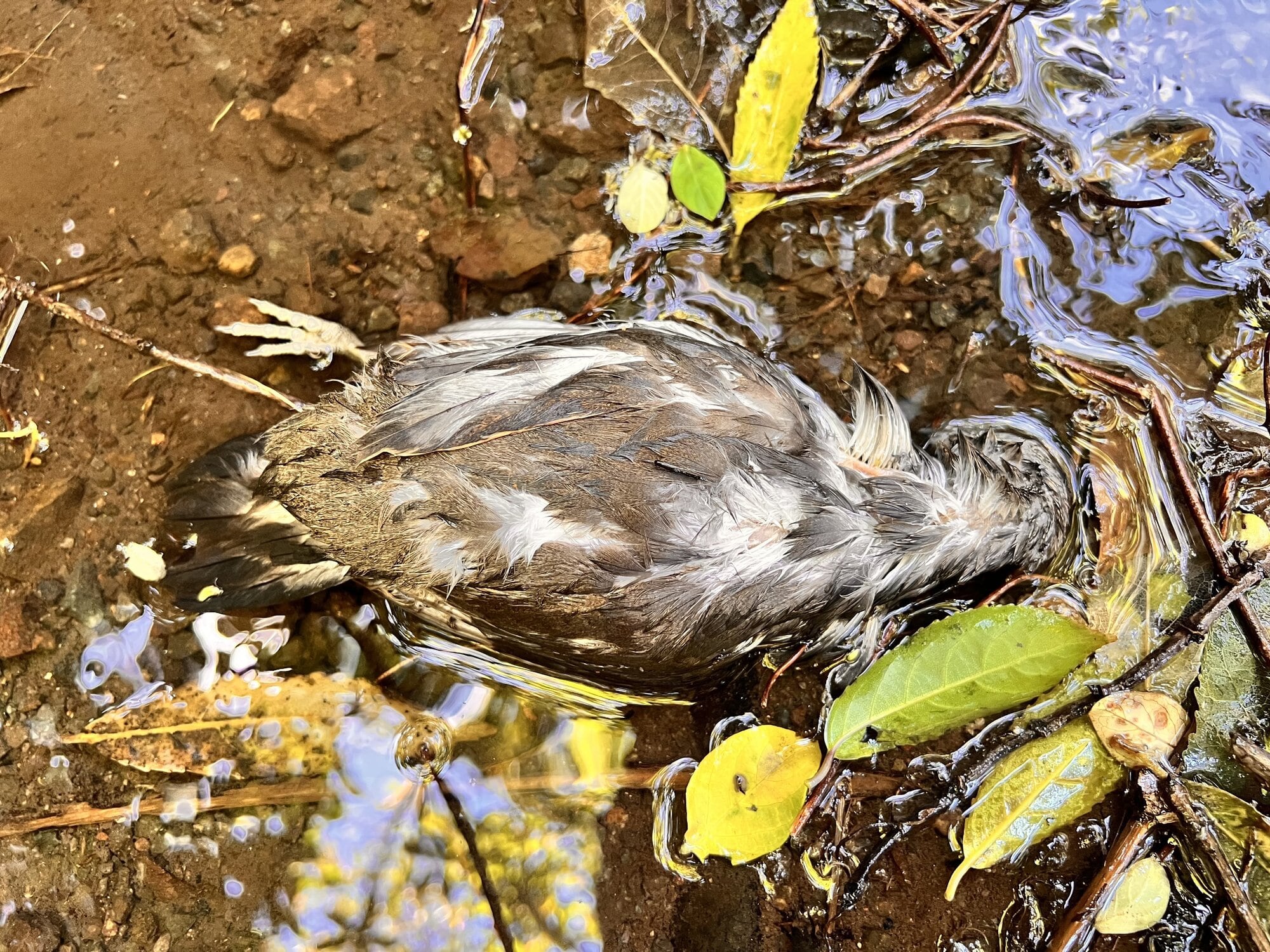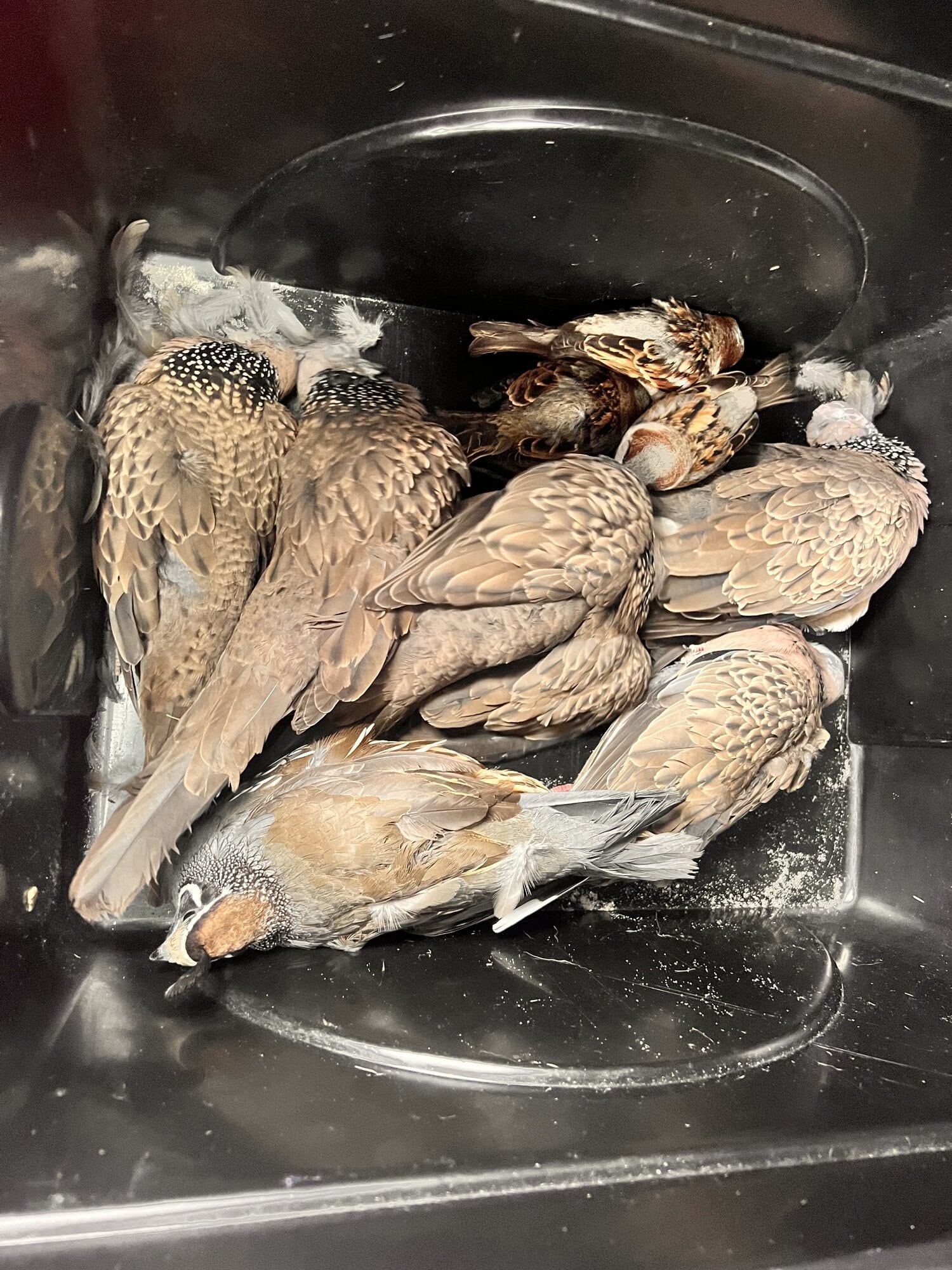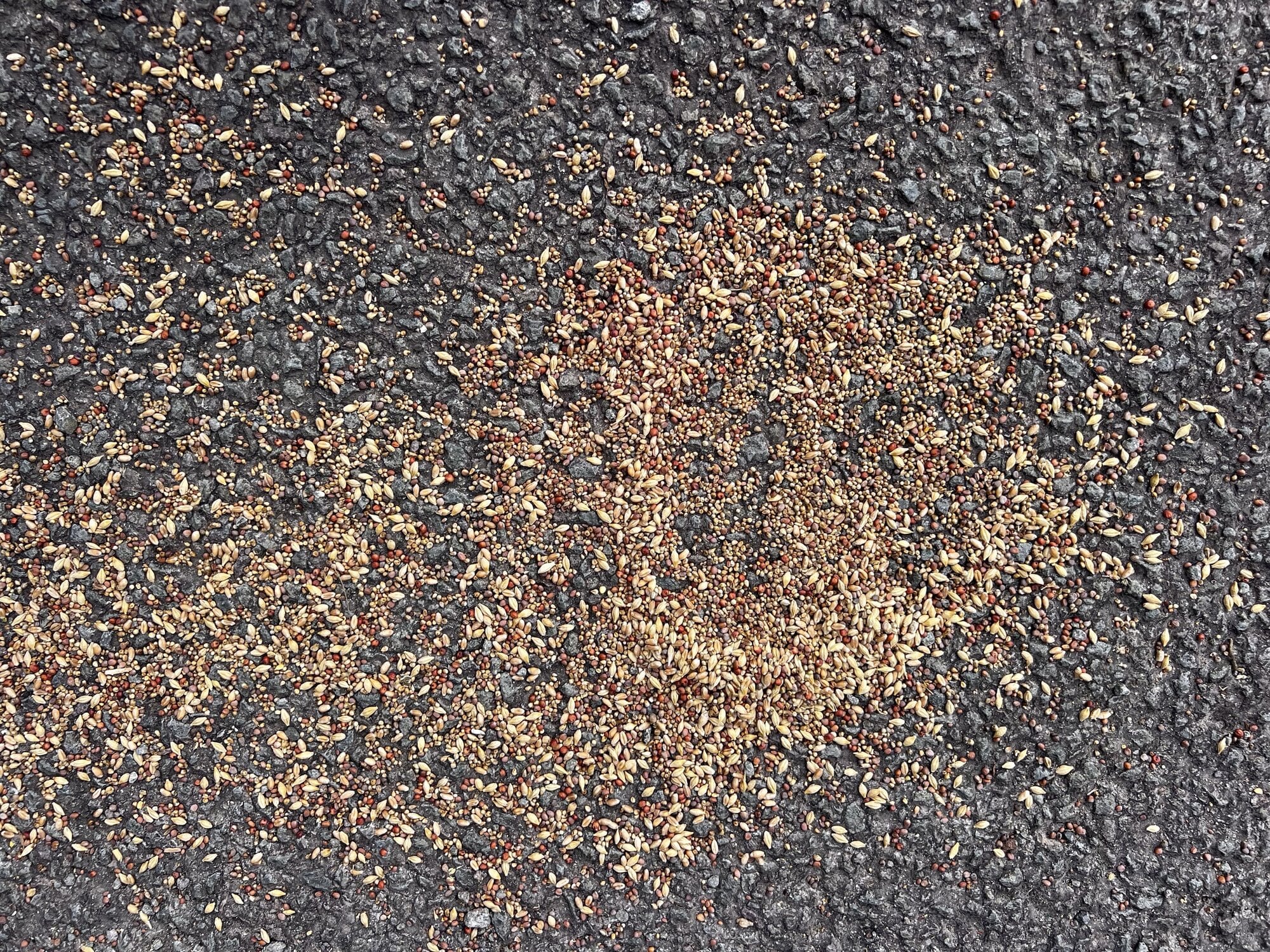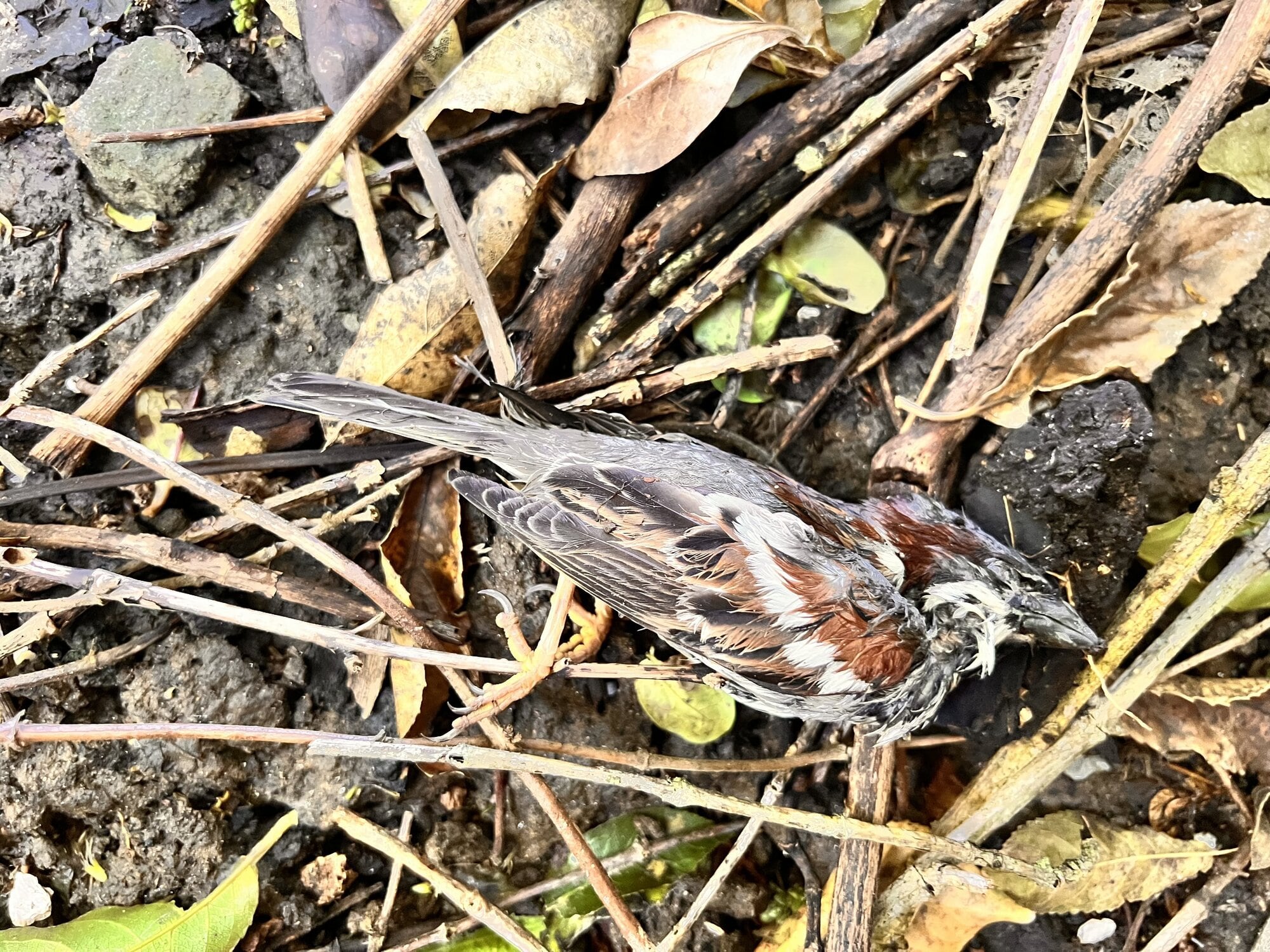Warning: Graphic images
Poisoning has been determined as the cause of “widespread deaths” of small birds at a Tauranga park.
How the birds came to be poisoned, and with what toxin, is a mystery – but one witness believes the bird seed scattered in the area is to blame.
Pāpāmoa resident Jill McFarlane said the scene she found at Pāpāmoa Hills Cultural Heritage Regional Park last week was like something out of a horror movie.
McFarlane said she received a call from another local and frequent visitor to the park, Danie Loots, on Thursday telling her he had come across a scene of birds having fits and dying in the old carpark.
“It was a horrid scene,” she said. “A friend and I tried to help as many as possible.”
She said they saw about 15 pigeons, sparrows, blackbirds, doves and quails dead or dying at the scene. She also noted bird seed scattered in the carpark.
They took some of the distressed birds to her husband, Paul Greaves – a locum veterinarian at Beach Road Veterinary Clinic – and his colleagues for help.
A rooster Loots had been visiting to feed every day had also been affected and was wobbling and falling over.
McFarlane took the rooster home, along with some other birds, to recover.

Jill McFarlane said the area looked like the scene of a horror movie. Photo / Jill McFarlane
Beach Road Veterinary Clinic director Brett Kirkland euthanised the birds that were past saving.
On Friday, McFarlane revisited the carpark to release the birds – including the rooster – that had recovered, but found several more birds in a bad condition.
She said the day before, she had seen about 40 quails, which she suspected were all dead.
“It’s pretty dramatic,” she said. “We were traumatised by it.”

Dead birds found at Pāpāmoa Hills Cultural Heritage Regional Park after a suspected poisoning. Photo / Jill McFarlane
“Paul and I had a vet practice for 30 years, so I’ve seen lots of horrible things, but this would have to be up there with having to watch all these birds thrashing around.
“It makes me upset even thinking about it.”
She raised the matter with the Department of Conservation, which told her to be careful as it could have been bird flu.
However, McFarlane suspected the bird feed she photographed at the scene had been deliberately poisoned and was to blame.

The suspected poisoned bird seed found at Pāpāmoa Hills Cultural Heritage Regional Park. Photo / Jill McFarlane
Kirkland said out of the 12 birds brought into the clinic, only four were still alive.
“The widespread deaths are consistent with a poisoning,” he said.
He could not say definitively which poison may have been involved without testing and a pathology report, which would be expensive for a member of the public to have done.
He said the clinical symptoms looked similar to those seen in cases of chloral hydrate (alpha-chloralose) poisoning.
He said if it was chloral hydrate, it would have anaesthetised the birds before they died from hypothermia.
“These birds looked like that, but there are many potential toxins.”
Poisoned birdfeed containing alphachloralose is available over the counter.

A dead sparrow found at Pāpāmoa Hills Cultural Heritage Regional Park after a suspected poisoning. Photo / Jill McFarlane
A Bay of Plenty Regional Council spokesperson said a member of the public reported finding about 20 to 30 dead and dying small birds near the original carpark at the end of Poplar Lane on Thursday evening.
“Our staff notified the Ministry for Primary Industries, who have ruled the cause of bird death to be a localised poisoning event.”
The council could not confirm if the bird feed was poisoned or how the poison was distributed.
The affected birds were removed from the site and “no residual bird feed was observed on the ground in the area”.
The council managed the park in partnership with Te Uepu in accordance with a management plan to protect cultural and natural values.
The spokesperson said the council did not operate a bird control programme at the regional park.
A Ministry for Primary Industries spokesperson said the ministry’s role was to rule out exotic disease as a cause of illness or death in these cases, which it had done.
“We did let the council know that there could be other endemic causes that could have led to this situation, and they include botulism, algal blooms or a poisoning event.”

.jpg)